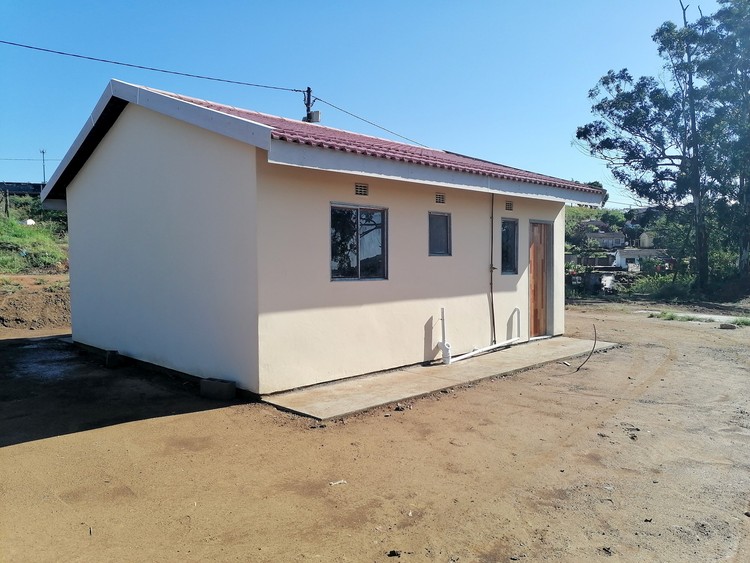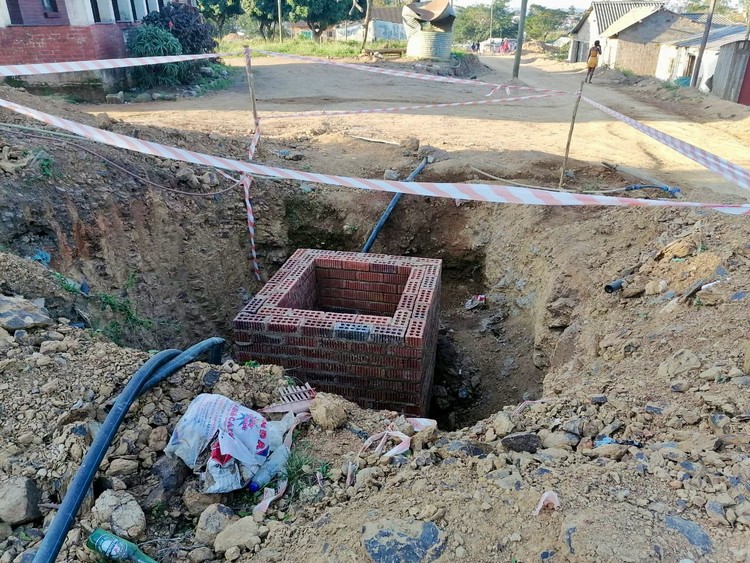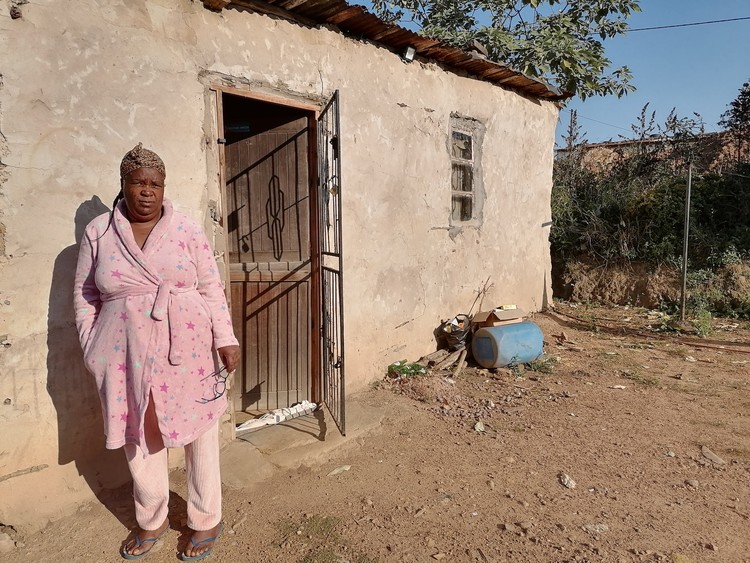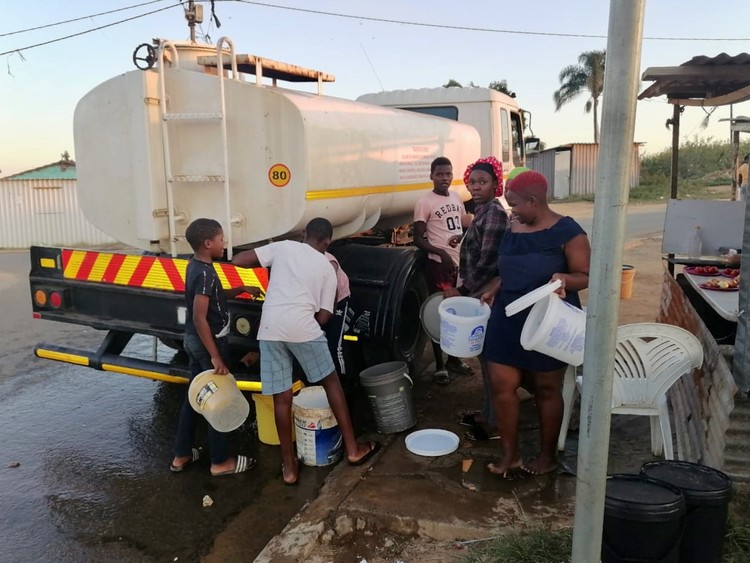R83-million and three and a half years later only one RDP house to show for it
Namibia Stop 8 Housing Project in Inanda started in 2019 and was meant to deliver hundreds of houses
The Namibia Stop 8 Housing Project in Inanda, eThekwini, started in 2019, but to date only this RDP house has been completed. Photos: Tsoanelo Sefoloko
- The Namibia Stop 8 Housing Project in eThekwini started in 2019 but to date only one RDP house has been completed.
- Hundreds of families relocated for the project have been living in cramped conditions in a poorly serviced transit camp for three and half years.
- The municipality blames bureaucratic delays, the Covid pandemic, the July 2021 unrest, and the KZN floods for the delays.
The Namibia Stop 8 Housing Project in Inanda, eThekwini, started in 2019, but to date only one RDP house has been completed.
Residents say the construction company was on site from 2019 to 2020, but stopped because of the Covid pandemic.
According to eThekwini Municipality spokesperson Lindiwe Khuzwayo, the development – located about 30km from Durban centre – comprises 500 serviced sites and 343 new housing units. She said R83-million had been spent so far.
The money had been spent on roadworks, stormwater, sewers, platforms and foundations, water reticulation, and some top structures.
At the council meeting on 31 May it was revealed that R43-million is needed to complete the project, according to the Democratic Alliance human settlements spokesperson and member of the provincial legislature, Marlaine Nair.
She says no more money should be allocated without “a comprehensive report that addresses the project’s progress, challenges, and any potential irregularities”.
Unfinished infrastructure at the Namibia Stop 8 housing project
When we visited the area last week we found one road tarred for less than 500 metres, and the other roads gravel. The stormwater system was incomplete. Some sewer trenches have been dug. A total of 13 houses were at foundation level. One house was complete.
eThekwini Councillor Zamani Khuzwayo (DA) said the project was 51% complete and the new finishing deadline was December 2024.
Khuzwayo blamed delays on bureaucracy and obtaining the necessary approvals, the relocation of families to temporary housing units, Covid, the 2021 July unrest, and the KZN floods.
Families who were relocated in November 2019 said they were told the project would take 18 months. Three and half years later, they are still sitting in transit camps.
Community leader Thami Ngidi said residents had been sceptical from the outset. He said out of 500 families, only 311 agreed to be moved.
“Unfortunately the officials managed to convince some of us. We ended up agreeing to be moved,” said Ngidi.
The informal settlement of Namibia Stop 8 was established in 1960. Residents, who refused to be relocated, live in homes made of reused bricks and corrugated iron. Some residents built pit toilets for themselves.
Several hundred families who refused to move will have to be relocated to finish the project.
Buzani Mkhize refused to move as the transit camp was too far away
Resident Buzani Mkhize said, “I told them that I want to be closer when they build my house so that immediately when they finish I move in. We know houses are being [illegally] sold in other areas.”
Tsepo Magubane said when his parents were relocated, his backyard room was demolished.
“I refused to go live in a one-room house with my parents and siblings. Our house is in the first row. We were told it will be done within six months but that never happened.”
Conditions at the transit camp are poor. Each family has to share a single room and there is a lack of toilets. People have to carry five and ten-litre buckets to the toilets to flush them. Water is currently being delivered by truck. Residents we spoke to said the water truck can be absent for weeks.
Mayor Mxolisi Kaunda said the municipality is busy with the repairs to vandalised pumps and apologised for the water situation.
People collect water from a truck in the transit camp.
Support independent journalism
Donate using Payfast

Don't miss out on the latest news
We respect your privacy, and promise we won't spam you.
Next: Widespread flooding in Cape Town informal settlements
Previous: Black Sash petitions social development minister to oversee SASSA
© 2023 GroundUp. This article is licensed under a Creative Commons Attribution-NoDerivatives 4.0 International License.
You may republish this article, so long as you credit the authors and GroundUp, and do not change the text. Please include a link back to the original article.
We put an invisible pixel in the article so that we can count traffic to republishers. All analytics tools are solely on our servers. We do not give our logs to any third party. Logs are deleted after two weeks. We do not use any IP address identifying information except to count regional traffic. We are solely interested in counting hits, not tracking users. If you republish, please do not delete the invisible pixel.




